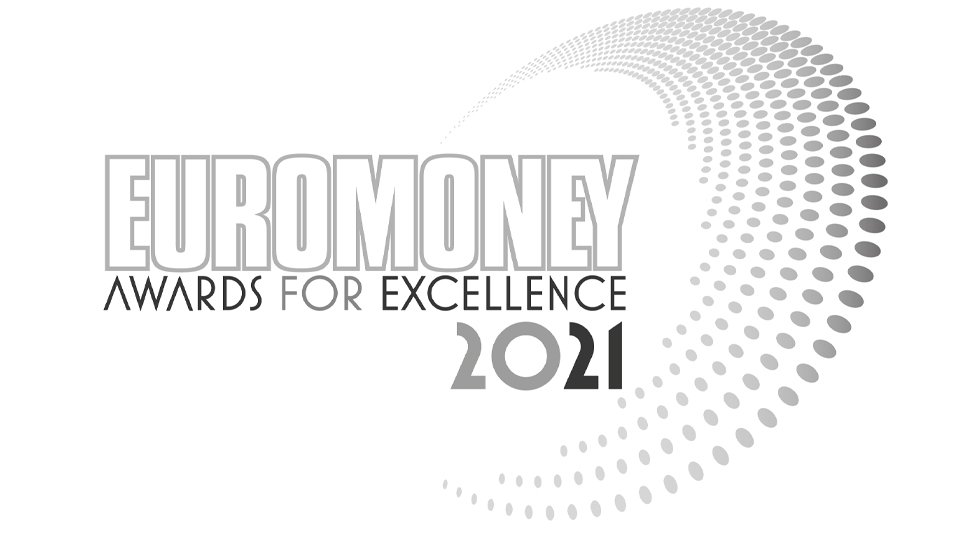With sustainable finance topping the agenda for the world’s leading banks, it takes a lot to stand out from the crowd.
Over our awards period, Morgan Stanley’s cutting-edge product innovation across divisions impressed, as did Goldman Sachs’s client-focused approach, Societe Generale’s work in gnarly sectors such as metals and mining, HSBC’s development of nature finance and Standard Chartered’s drive to bring sustainability to emerging markets.
However, BNP Paribas can genuinely claim to have brought sustainability into the mainstream of its operations, making it the winner of Euromoney’s award for the world’s best bank for sustainable finance this year.
Shortlisted
- Bank of America
- Citi
- Goldman Sachs
- HSBC
- Morgan Stanley
- Societe Generale
- Standard Chartered
On energy transition, the French group has been well ahead of even European peers. Restrictions on funding for the thermal coal sector were first introduced 10 years ago and have since been tightened, while in 2017 BNPP became the first major bank to announce plans to exit the non-conventional oil industry.
Unlike many banks with sectoral policies, BNPP is happy to put numbers on the business it has lost as a result of these decisions. By the end of 2020, the bank had reduced its exposure to shale gas and tar sands producers to zero, from €4 billion in 2016, ending its relationship with 60 clients. A review of its portfolio last year resulted in plans to phase out nearly half of clients in the utilities sector due to their continued dependence on coal.
BNPP has also been a leader in developing methodologies for reducing financed emissions across portfolios.

Well before the rush of net zero announcements over the past year and the formation in April of the Net-Zero Banking Alliance (NZBA) – of which BNPP is a founder member – the French lender was one of five signatories to the Katowice Commitment in 2018, which pledged the banks involved to align their business with the Paris Agreement.
That resulted in the development of Paris Agreement Capital Transition Assessment, an open-source climate scenario analysis methodology for high-emitting sectors that represented one of the first attempts to produce a standardized portfolio assessment tool for the banking industry.
BNPP was also one of the largest banks to sign the Collective Commitment to Climate Action in September 2019, agreeing to fast track its commitments under the Principles for Responsible Banking, and is a member of other leading industry bodies including the Financial Services Taskforce of the Sustainable Markets Initiative.
The bank has also worked closely with regulators across its global network on climate and environmental issues, playing a leading role in the European Union’s Technical Expert Group on Sustainable Finance and supporting authorities in Asia Pacific.
This collaborative approach is also evident in BNPP’s support for industry bodies working on transition, such as the Hydrogen Council and sustainable mobility coalition Movin’On, as well as its partnerships with information providers and others working on sustainable finance’s data challenge.
Proactive
This in turn highlights another area where BNPP stands out from the sustainable finance crowd, namely in its innovative and proactive approach to data.
The group’s recent work on OS Climate – an open-source, non-profit data platform hosted by the Linux Foundation – also speaks to a commitment to transparency, as does the publication of its first Taskforce on Climate-Related Financial Disclosures report last year.
“Trust comes with transparency,” says Laurence Pessez, head of corporate social responsibility at BNPP. “That’s why we put a lot of energy into disclosure.”
Trust comes with transparency… That’s why we put a lot of energy into disclosure
Laurence Pessez
BNPP’s rigorous, data-driven approach to the environmental, social and governance (ESG) sector more broadly underpins its impressive sustainable capital markets franchise, enabling the group to develop structures that are meaningful and impactful.
The bank regularly tops global league tables for ESG-labelled bonds of all stripes, which in turn provides the insight for intelligent innovation, says Antoine Sire, head of company engagement.
“Our huge deal flow allows us to have a really good understanding of both our clients’ needs and the market’s needs,” he says.
Pioneering
This is reflected in BNPP’s pioneering work on sustainability-linked structures, which have spread rapidly from the loan market to bonds, derivatives and other products over the past two years.
Landmark deals for the French bank in the awards period included the first European convertible sustainability-linked bond (SLB), from Schneider, the first SLBs from the Americas (Suzano) and the UK (Tesco), and the first sustainability-linked loan from the US technology sector (Flex).
BNPP has also continued to champion transition bonds, supporting power and utility clients such as Cadent and SNAM, as well as Hong Kong’s CLP Group.
At the same time, Constance Chalchat, head of engagement for BNPP corporate and institutional banking, stresses that the bank is not interested in “innovation for the sake of innovation.”
“We have seen innovations that were pure greenwashing,” she says. “What matters to us is, first, ensuring that a product fits the company’s sustainability strategy and second that it is truly impactful in a positive sense.
“We have achieved many firsts, but there are also firsts that we are not bragging about because we decided not to do them. We felt that they were not additional, rigorous or supporting a true sustainability plan.”
What matters to us is, first, ensuring that a product fits the company’s sustainability strategy and second that it is truly impactful in a positive sense
Constance Chalchat
Another area where BNPP has emerged as a global pioneer is biodiversity. Three years after signing up to the act4nature initiative, the bank this year announced a target of €3 billion of financing for the protection of terrestrial biodiversity by 2025 and pledged to assess all its clients for biodiversity impact by the same date.
“We believe biodiversity is the next frontier,” says Pessez. “At the moment investors are still very focused on climate, partly due to all the changes in regulation in the EU and elsewhere. But we believe that biodiversity will move up the agenda very fast, in the same way that climate did in 2015.”
The group has introduced exclusion commitments on oil from the Arctic and Amazon regions, as well as a restrictive policy to fight deforestation in the Amazon and Cerrado, including a commitment to refuse financing to clients without a strategy to reach zero deforestation by 2025.
The latter has already produced results, prompting one of BNPP’s largest commodity trader clients in the region to move its target date for zero deforestation by five years to align with the bank’s target.
BNP Paribas Asset Management, one of the industry leaders on nature finance, has also taken steps to address biodiversity challenges in Latin America, as well as other issues such as regenerative agriculture and the preservation of Arctic wildlife.
Social bonds
On the social side, BNPP has an equally impressive record. Not only has the bank topped league tables for social bonds as the asset class exploded since the start of the pandemic, it has also been a key driver of the development of the social impact bond (SIB) market in Europe and the US.
Since 2016, the bank has structured 10 SIBs to deliver funding to social enterprises, covering areas from unemployment to waste management. It is also working on development impact bonds, with the first structures focused on Africa and targeting tobacco growers and menstrual hygiene.
BNPP is also very active in microfinance and took prompt action to support its clients during the Covid crisis, particularly in markets such as India that were hard hit by the pandemic.
“We took the decision to continue disbursing loans in India rather than waiting for positive signals from our microfinance clients, because we know that they need our support,” says Pessez.
The group’s financial inclusion efforts are not limited to emerging markets. Its French subsidiary Nickel, which offers a credit card and bank account unconditionally to anyone over the age of 12, saw record growth of 27% last year.
Underpinning all of BNPP’s work on both sustainable finance and mainstreaming sustainability across its business lines is training.
All corporate and investment banking staff now receive education on sustainable finance solutions, while a new initiative launched last year provides targeted training for financial institutions coverage bankers.
BNPP has also collaborated with the University of Cambridge Institute for Sustainability Leadership to ensure that staff across the group are educated on critical ESG issues.
This was supplemented last year by the launch of We Engage, an awareness programme for all employees designed to build a common base of knowledge on sustainable finance, as well as current environmental and social topics.
Sessions are being led by senior management from areas such as corporate banking, which Sire describes as “a very strong signal.”
“It’s not just our chief executive saying we have to be sustainable or our sustainability team explaining how to do it,” he says. “It’s the head of a major business unit of the company explaining how sustainability is part of his project.”
Energy transition
This commitment to sustainability is already reflected across the group, particularly when it comes to the energy transition.
BNP Paribas Asset Management oversees more than €18 billion of green funds and is a leader in active ownership. Last year it opposed 451 resolutions at 66 general meetings, mostly for climate-related reasons, and served as lead filer of a new shareholder proposal seeking climate lobbying disclosure from Exxon Mobil, Chevron, Delta Airlines and United Airlines.
Financing the transition is mainstream throughout the group… In everything we do we have it on the top of our agenda
Laurence Pessez
BNP Paribas Arval is a leader in sustainable mobility solutions and last year leased 100,000 electrified vehicles, while an impact property fund launched last year by the group’s real estate investment management arm had reached €160 million of commitments by year end.
In the retail segment, US subsidiary Bank of the West last June introduced a checking account with a tool designed to estimate the carbon impact of every purchase made. Carbon footprint tracking apps have also been offered to BNPP customers in Turkey and Poland.
Finally, the group is putting its own money to work. A fund for financing energy transition startups achieved its target of €100 million invested by the end of last year, while the start of 2021 saw the launch of an early-stage fund in collaboration with the Solar Impulse Foundation.
“Financing the transition is mainstream throughout the group,” says Pessez. “It’s everybody’s business. In everything we do we have it on the top of our agenda.”







